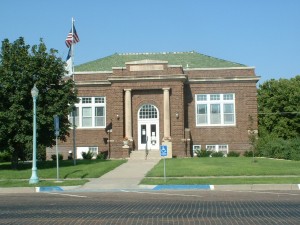I get a lot of questions from distance and non-traditional students. I give a lot of credit to them; while I took my sweet time lazing about on grassy lawns while getting my undergraduate degree, they are out there hustling, working, and having incredibly complicated lives while getting and education. Of these intrepid souls, I hear the following:
“Don’t they know they should be going to their school’s library?”
Generally, the answer is yes, they do. But they also understand that libraries, in general are places where they can get some access to the long-form conversations that take place in books, magazines, newspapers, and journals take place. What they are missing is the fact that public libraries have that format, but not the same content. It’s actually pretty cool that they understand more of the context of libraries than the content. This has become an excellent jumping off point for me as a reference librarian. Having recently been in school, I’m pretty well versed in what resources are available to them, and I often spend time helping them navigate their choices.
All of this really came together, when I was skimming across Art:21, which made the well-worn point that,
The stuff that higher education is made out of is accessed from the campus, and a large part of it is still in the libraries: the books scholars and teachers write, the electronic access to the articles they publish, the proceedings from the obscure conferences they attend. These are the artifacts that all the hubbub on campuses creates. The campus library is the context for that particular content, and by not being there (physically or digitally), the student misses out on the process of making, buying, performing, displaying, and destroying of these things that record work on campuses. It hearkens back to The Warhol Economy. But for higher ed.
All of this nonsense got its’ legs when I read a Snarkmarket post by Tim Carmody about Author and Work Functions. Here’s two quotes that get to it:
“[W]hat we’re dealing with now, I think, is the ramification of having long-form writing not necessarily meaning physical objects, not necessarily meaning commissioning editors and publishers in the manner of making those physical objects, and not meaning any of the sales channels or the preexisting ways of producing cultural focus. This is really clear to me as someone who writes and publishes both on a weblog and books. There are certain channels of conversation in this society that you can only get into if you have written a book. Terry Gross has never met anyone in her life who has not JUST published a book. Right?” (From an interview with Clay Shirky)
“The way our culture works, depending on what field you’re operating in, certain kinds of objects (or in some cases, events) generate more cultural focus than others. Shirky gives an example from painting: “Anyone can be a painter, but the question is then, ‘Have you ever had a show; have you ever had a solo show?’ People are always looking for these high-cost signals from other people that this is worthwhile.” In music, maybe it used to be an album; in comedy, it might be an hour-long album or TV special; I’m sure you can think of others in different media. It’s a high-cost object that broadcasts its significance. It’s not a thing; it’s a work.”
I think libraries provide more of the context that gives works their own cultural significance, in addition to the publishers, the authors, and the author’s backing institutions. Shirky’s comment can be co-opted by library folk this way:
There are certain channels of conversation in this society
that you can only get into if you go to a library.
And it matters what library that is. More than anything else, this is the takeaway that I give to distance and other non-traditional students. You are taking part in a conversation. You are learning to talk so you can join, and the context matters. Public libraries and librarians can help you. But if you’re going for 100%, you need to be in that context.


